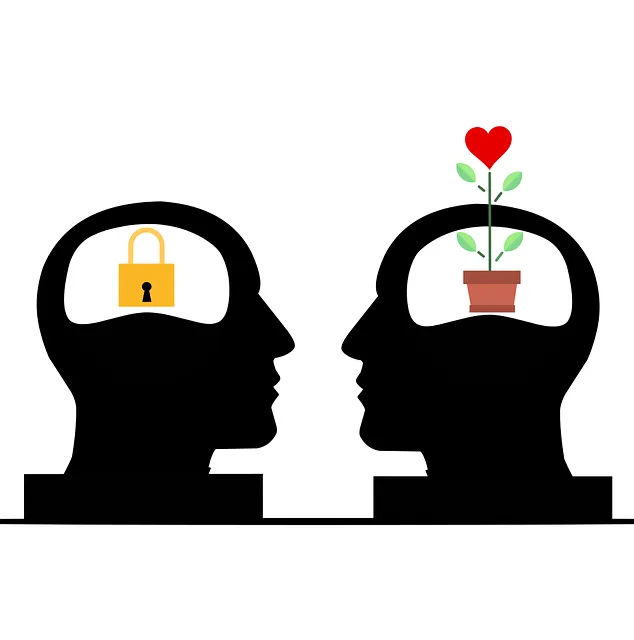The Kaiser Permanente mental health facility in Lone Tree employs a holistic approach to emotion regulation, focusing on empowering individuals to manage emotions healthily. They combine evidence-based practices like cognitive-behavioral therapy (CBT) and mindfulness with cultural sensitivity, offering tailored coping strategies for stress, anxiety, and other emotional challenges. Through community outreach programs including workshops, self-care practices, and digital resources, the facility enhances mental well-being for a diverse audience, aiming to build immediate tools for emotional management and long-term resilience.
Emotion regulation techniques are essential tools for managing stress, anxiety, and other mental health challenges. At the Kaiser Permanente Mental Health Facility in Lone Tree, innovative approaches are teaching individuals effective strategies to navigate their emotions. This article explores the unique methods employed by experts at the facility, offering insights into practical tips for incorporating emotion regulation into daily life. Discover how these techniques can enhance overall well-being and resilience.
- Understanding Emotion Regulation Techniques at Kaiser Permanente Mental Health Facility Lone Tree
- Teaching Methods and Strategies Employed by Experts
- Practical Tips for Incorporating Emotion Regulation in Daily Life
Understanding Emotion Regulation Techniques at Kaiser Permanente Mental Health Facility Lone Tree

At Kaiser Permanente Mental Health Facility Lone Tree, understanding emotion regulation techniques is a cornerstone of their therapeutic approach. This facility recognizes that effective mental healthcare goes beyond treating symptoms; it involves empowering individuals to manage and regulate their emotions healthily. By integrating evidence-based practices into their programs, they offer clients valuable tools for coping with stress, anxiety, and other emotional challenges.
The Kaiser Permanente team comprises highly trained professionals who are sensitive to the diverse needs of their community. They incorporate cultural sensitivity in mental healthcare practice, ensuring that emotion regulation techniques are tailored to individual backgrounds and experiences. Additionally, the facility’s commitment to community outreach program implementation has enabled them to reach a broader audience, promoting mental well-being through educational workshops, self-care practices, and supportive services accessible to all.
Teaching Methods and Strategies Employed by Experts

At the Kaiser Permanente mental health facility in Lone Tree, experts employ a multifaceted approach to teach emotion regulation techniques, recognizing that each individual’s experience with emotions is unique. These methods include interactive workshops, cognitive-behavioral therapy (CBT), mindfulness practices, and personalized coaching sessions tailored to address specific emotional challenges. By combining evidence-based strategies with a compassionate, supportive environment, the facility aims to empower individuals to develop effective coping mechanisms.
The teaching strategies focus on enhancing public awareness campaigns related to emotional regulation, particularly in managing stress and anxiety relief. Through group discussions, role-playing scenarios, and accessible digital resources, experts facilitate an understanding of emotional responses and provide practical tools for navigating intense feelings. This holistic development approach not only equips individuals with skills for immediate emotional regulation but also fosters long-term resilience.
Practical Tips for Incorporating Emotion Regulation in Daily Life

Emotion regulation is a skill that can be cultivated over time, making it an essential aspect of maintaining good mental health, especially for those seeking support at facilities like the Kaiser Permanente mental health facility in Lone Tree. Incorporating emotion regulation techniques into daily routines offers practical benefits for managing stress and enhancing overall well-being. One effective strategy is practicing mindfulness, which involves being fully present in the moment. This can be done through simple breathing exercises or more structured practices like meditation, helping individuals to become more aware of their emotions without judgment.
Additionally, fostering compassion towards oneself and others through Compassion Cultivation Practices has shown promise in various Mental Health Policy Analysis and Advocacy studies. Encouraging a growth mindset, where challenges are seen as opportunities for learning, can also empower individuals to navigate emotional situations with resilience. Adopting Mind Over Matter Principles encourages taking charge of thoughts and perceptions, which, in turn, influences how emotions are experienced and expressed, fostering a healthier relationship with one’s feelings.
Emotion regulation techniques, as taught at the Kaiser Permanente Mental Health Facility in Lone Tree, offer valuable tools for managing and understanding our emotional responses. By employing evidence-based strategies, individuals can gain greater control over their emotions, leading to improved mental well-being. Integrating these practices into daily life, as suggested by the practical tips provided, empowers folks to navigate challenging situations with resilience and adaptability. The methods shared by experts at Kaiser Permanente Mental Health Facility Lone Tree are indeed transformative, enabling people to live more balanced and fulfilling lives.






